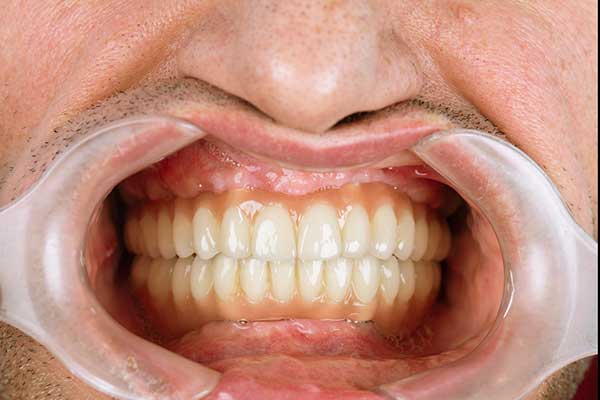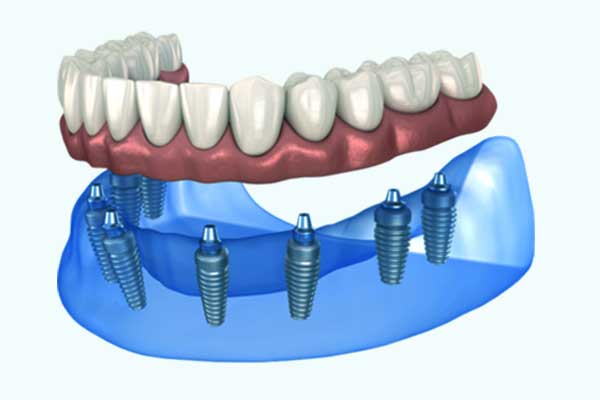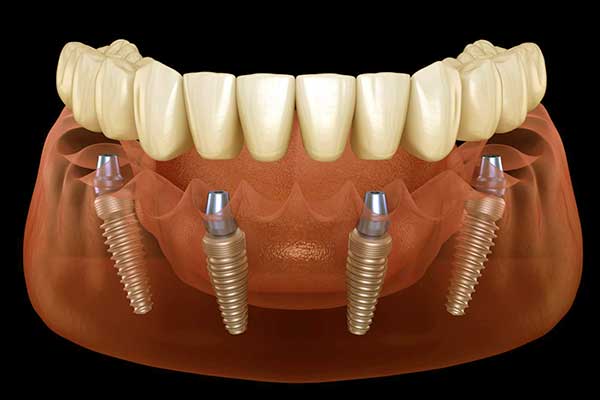Immediate Implant Treatment in Turkey
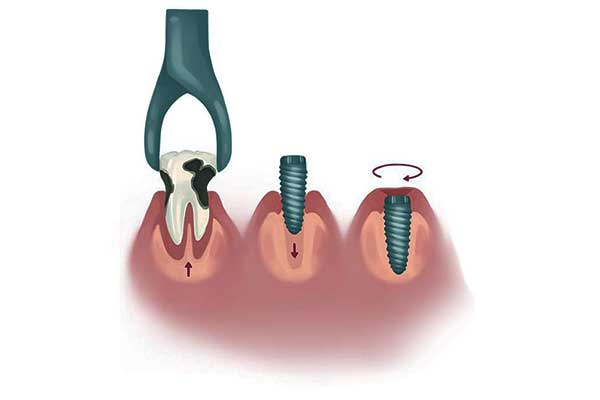
Immediate implant treatment is a groundbreaking procedure in dentistry that offers patients a swift and efficient solution to tooth loss. Unlike traditional methods that involve multiple appointments and waiting periods, immediate implant treatment streamlines the process by placing the implant directly after tooth extraction. This innovative approach not only saves time but also promotes better outcomes for patients.
Before and After Turkey Teeth Immediate implant treatment
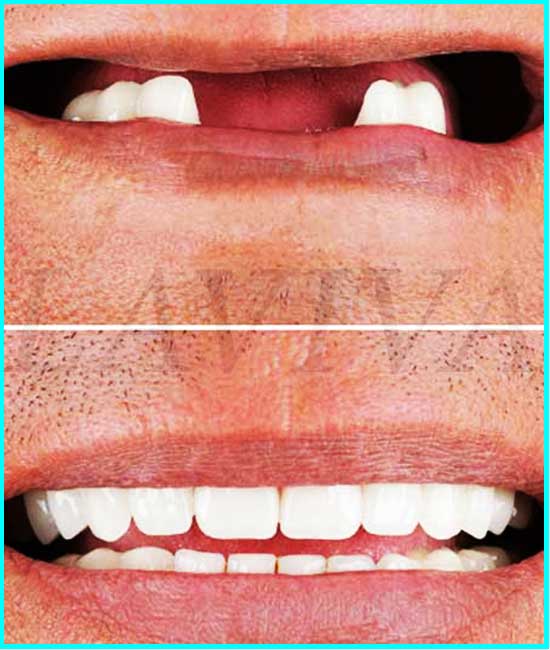
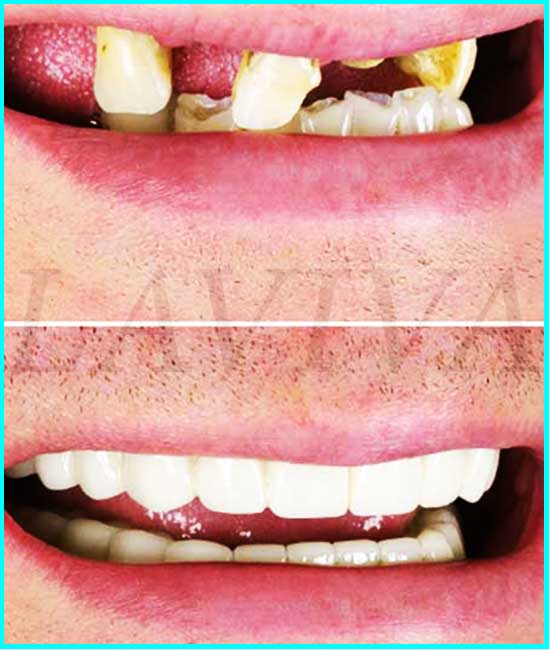
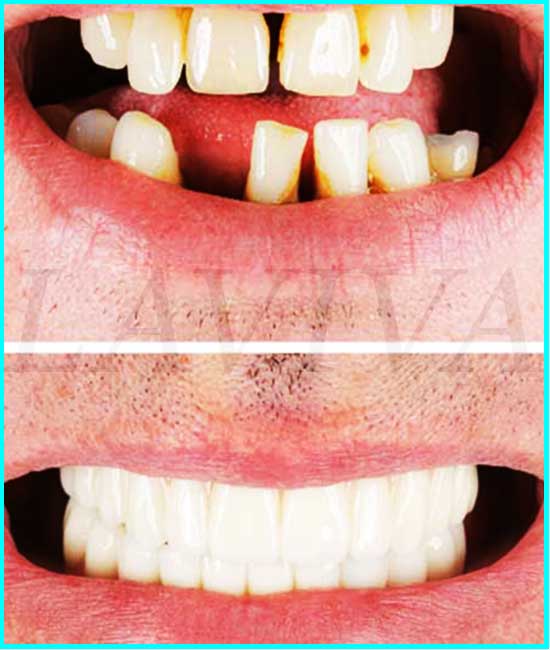
Understanding Immediate implant treatment
Immediate implant treatment is an advanced dental procedure offering immediate implant placement following tooth extraction. This innovative approach allows patients to receive a new implant and tooth restoration in a single session.
To qualify for immediate implant treatment, patients must have no active infections in the tooth area and adequate bone volume for implant placement. The tooth extraction process should be as minimally traumatic as possible, and additional bone grafting may be necessary to ensure successful implant integration.
Before proceeding with the procedure, the dentist evaluates the patient’s maxillofacial structure to ensure proper implant placement and aesthetics.
Opting for immediate implants abroad provides patients with the opportunity to restore their teeth efficiently while also enjoying a unique travel experience. By combining dental treatment with travel, patients can return home with a rejuvenated smile and memorable experiences.
Immediate implant treatment Cost in Turkey
| Treatment | Turkey (EUR) | Europe (EUR) | Savings |
|---|---|---|---|
| All-on-4 | €1,920 | €9,540 | 73% |
| All-on-6 | €2,880 | €12,920 | 70% |
| Zirconium Implants | €2,880 | €10,540 | 66% |
| Full Mouth Reconstruction | €5,280 | €19,200 | 72% |
Performing Immediate Implant Treatment
Typically, implants are crafted after a waiting period of 1.5 to 2 months post-tooth extraction. However, in favorable circumstances, implants can be placed concurrently with extraction, known as immediate implant application, condensing the entire treatment into one session.
The surgical procedure resembles standard implant placement, albeit requiring significant expertise. Each step demands precision, highlighting the importance of a skilled dentist.
Immediate load dental implants differ from traditional implants in that they offer expedited treatment. While traditional implants entail multiple sessions to achieve perfection, repeated clinical practice enables dentists to perform immediate implant treatment in a single day.
Eligibility for Immediate Implant Treatment
Immediate implants typically target the anterior teeth, with intact teeth preferred for extraction. Traumatic extractions are avoided, along with teeth displaying acute infections or severe inflammation.
Therefore, resolving pre-existing dental issues is advisable before pursuing immediate implant treatment. For instance, acute infections can potentially spread during immediate implant treatment, underscoring the importance of a healthy oral environment beforehand.
Steps of Immediate Implant Treatment
Immediate dental implants can be completed in just one day following tooth extraction, but certain considerations must be addressed.
Prior to implant placement, the dentist evaluates the patient’s overall health and assesses the compatibility of the maxilla and jaw structure for implant treatment. X-rays are utilized to accurately determine the Maxillofacial status, ensuring precise restoration.
For single-tooth loss, a single implant can be applied without affecting adjacent teeth.
In cases involving the absence of large or molar teeth, a fixed bridge can be created using one or more implants in the posterior regions of the mouth. While prostheses are an alternative, their mobility and coarseness make them less favorable.
Dentists commonly recommend implant treatment due to its longevity compared to other methods. When necessary, megagen implants can be combined with Straumann implants for increased stability and efficiency.
Implant treatment is highly successful for cases where not all teeth are present in the lower jaw. By placing two or more implants in the anterior region of the lower jaw, artificial teeth closely resembling natural teeth are obtained, enabling normal oral function.
This method is effective for long toothless spaces, where one or more implants are placed to support robust and trouble-free artificial teeth, avoiding issues associated with lengthy fixed bridge areas.
Implant treatment is suitable for both upper and lower jaws lacking teeth. In cases of jawbone volume loss due to osteoporosis, implants are placed in the upper and lower jaws to secure prosthetic teeth, allowing patients to retain chewing and speaking functions.
Compared to alternative methods, implant treatment offers superior chewing and speaking functionality, while preserving the taste of foods.
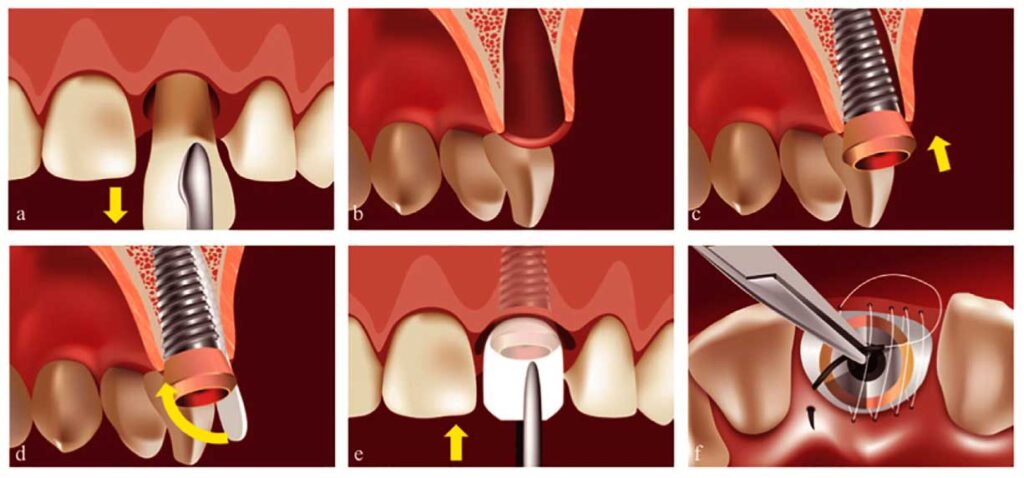
eatures and drawbacks of immediate implant treatment:
| Features | Advantages | Disadvantages |
|---|---|---|
| Treatment Efficiency | – Immediate restoration of tooth function and aesthetics. – Eliminates the need for multiple appointments. | – Requires careful patient selection and assessment for suitability. |
| Preservation of Bone | – Prevents bone loss and preserves natural bone structure. – Promotes long-term stability of the implant. | – May require additional bone grafting in cases of inadequate bone volume. |
| Aesthetic Results | – Provides a natural-looking replacement for missing teeth. – Restores confidence and self-esteem. | – Immediate restoration may result in temporary swelling and bruising. – Final restoration may require adjustments for optimal aesthetics. |
| Functionality | – Restores chewing and speaking functions. – Offers comfort and stability similar to natural teeth. | – Initial discomfort and sensitivity may occur during the healing process. – Risk of implant failure if proper oral hygiene is not maintained. |
| Time Efficiency | – Shortens treatment duration by combining extraction and implant placement. – Minimizes downtime and allows for quicker return to daily activities. | – Immediate implant placement may not be suitable for all patients or all tooth extraction cases. |
| Cost-Effectiveness | – Reduces overall treatment costs by consolidating procedures and appointments. – Decreases the need for interim tooth replacements. | – Initial investment may be higher compared to traditional tooth replacement options. |
This table highlights the various benefits and drawbacks of immediate implant treatment, aiding patients in making informed decisions about their dental care.
Immediate Implant Treatment Reviews
Sophia Rodriguez
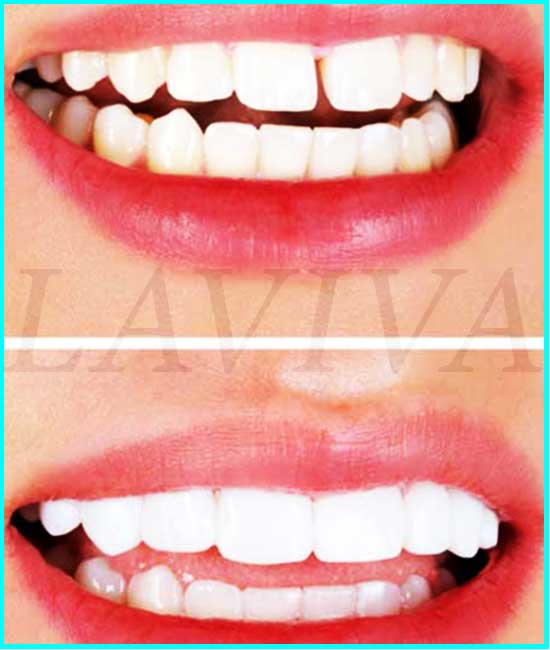
- Country: Spain
- Age: 40
- Profession: Lawyer
- Procedure: Dental Implants
Experience
Sophia traveled to Turkey for dental implant surgery and had an exceptional experience. The dental team at the clinic provided thorough pre-operative assessments and personalized care. Sophia felt confident in the surgeon’s expertise and was impressed by the professionalism of the staff. The dental implants were placed with precision, restoring Sophia’s smile and dental function effectively. She highly recommends the clinic for dental implant procedures.
Rating: ⭐⭐⭐⭐⭐
Daniel Lee
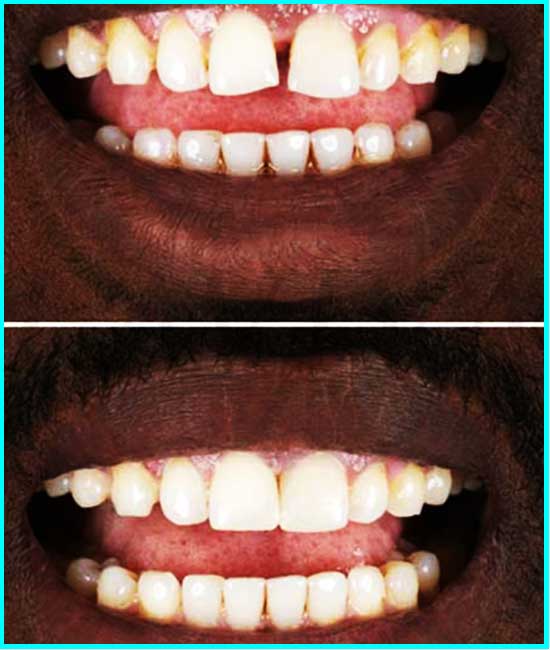
- Country: Australia
- Age: 38
- Profession: Engineer
- Procedure: Gum Disease Treatment
Experience
Daniel underwent gum disease treatment at a dental clinic in Turkey and was extremely satisfied with the care he received. The dental team conducted a thorough assessment of Daniel’s oral health and provided comprehensive treatment for his gum disease. Daniel appreciated the professionalism and expertise of the staff, who ensured his comfort throughout the process. The treatment effectively resolved Daniel’s gum issues, and he highly recommends the clinic for gum disease treatment.
Rating: ⭐⭐⭐⭐⭐
Post-Immediate Implant Care: Ensuring a Smooth Recovery
Congratulations on completing your immediate implant treatment! Now, as you embark on your journey to optimal oral health, it’s essential to follow these post-treatment guidelines for a successful recovery and long-lasting results.
Dietary Considerations
After immediate implant treatment, it’s crucial to be mindful of your diet to promote healing and minimize discomfort. Here are some dietary tips to consider:
- Soft Foods: Opt for soft, cold foods such as cold puree, dairy products, and ice cream immediately after treatment.
- Avoid Hot Foods: Steer clear of hot drinks and foods during the first 24 hours post-treatment to prevent irritation.
- Gentle Pressure: Apply gentle pressure with a soft, sterile tampon to stimulate clotting and stop bleeding.
Oral Hygiene Practices
Maintaining proper oral hygiene is key to preventing complications and ensuring the success of your implant treatment. Follow these guidelines for optimal oral care:
- Avoid Spitting or Rinsing: Refrain from spitting or rinsing your mouth for the first 24 hours to promote wound healing.
- Delay Brushing: Wait at least 36 hours before brushing your teeth or using mouthwash after the procedure.
- Regular Gargling: Gargle with mouthwash or salt water twice a day for two weeks to keep the implant area clean.
- No Smoking or Alcohol: Avoid smoking or consuming alcohol for the first 24 hours, as it can interfere with the healing process.
Managing Discomfort
While discomfort and swelling are common after implant treatment, there are steps you can take to alleviate symptoms and promote healing:
- Cold Compress: Apply ice to the treated area for 10 minutes at a time during the first day to reduce swelling.
- Elevate Head: Sleep with your head elevated for the first two nights to facilitate healing and minimize swelling.
- Medication Usage: Take prescribed antibiotics or painkillers as directed by your dentist to manage discomfort and prevent infection.
Follow-Up Care
Your dentist may schedule follow-up appointments to monitor your progress and remove any sutures if necessary. Remember to:
- Stay Informed: If you experience any issues or have questions, don’t hesitate to reach out to your dentist for guidance.
- Suture Removal: Absorbable stitches typically dissolve on their own within two weeks, while non-absorbable stitches may require removal after 5-7 days.
Conclusion
By following these post-treatment guidelines diligently, you can ensure a smooth recovery and optimize the success of your immediate implant treatment. Remember, your dentist is here to support you every step of the way, so don’t hesitate to seek assistance if needed. Here’s to a healthy and radiant smile!
look at our services
Frequently Asked Questions About Immediate Implant Treatment
What is the immediate implant procedure?
The immediate implant procedure involves the placement of a dental implant directly into the extraction socket immediately after tooth removal. This allows for the restoration of a missing tooth in a single appointment, eliminating the need for a healing period between tooth extraction and implant placement.
How successful is immediate implant placement?
Immediate implant placement has shown to be highly successful when performed by experienced dental professionals. Success rates typically range from 90% to 95%, depending on various factors such as patient selection, bone quality, and oral hygiene maintenance.
What to consider for immediate implant?
Several factors should be considered for immediate implant placement, including:
- Patient’s overall health and suitability for surgery.
- Condition of the extraction socket and surrounding bone.
- Presence of infection or inflammation in the area.
- Proper assessment of aesthetic and functional requirements.
Are immediate implants better?
Immediate implants offer several advantages, including shorter treatment time, preservation of bone structure, and immediate restoration of aesthetics and functionality. However, whether they are better depends on individual patient factors and treatment goals.
What are the disadvantages of immediate implants?
Disadvantages of immediate implants may include:
- Higher risk of implant failure in certain cases.
- Potential for complications such as infection or poor osseointegration.
- Limited suitability for all patients and tooth extraction scenarios.
What are the disadvantages of immediate dental implants?
Similar to immediate implants, disadvantages of immediate dental implants may include:
- Increased risk of complications compared to traditional implant placement.
- Potential need for additional bone grafting procedures.
- Higher initial cost compared to traditional tooth replacement options.
Is immediate implant safe?
When performed by a skilled dental professional and in appropriate cases, immediate implant placement is generally considered safe. However, patient selection and thorough pre-operative evaluation are essential to minimize risks and ensure successful outcomes.
Do immediate implants work?
Yes, immediate implants can be highly effective in restoring missing teeth and providing patients with functional and aesthetic benefits. However, the success of immediate implants depends on various factors, including patient selection, surgical technique, and post-operative care.
Can dental implants really be done in one day?
Yes, dental implants can be placed in one day through immediate implant procedures. This approach allows for the extraction of a tooth and placement of an implant during the same appointment, reducing treatment time and providing immediate restoration of the missing tooth.

Seize the opportunity today to attain the smile you deserve. Make your dental health a priority now and open the door to a brighter, more confident future.




